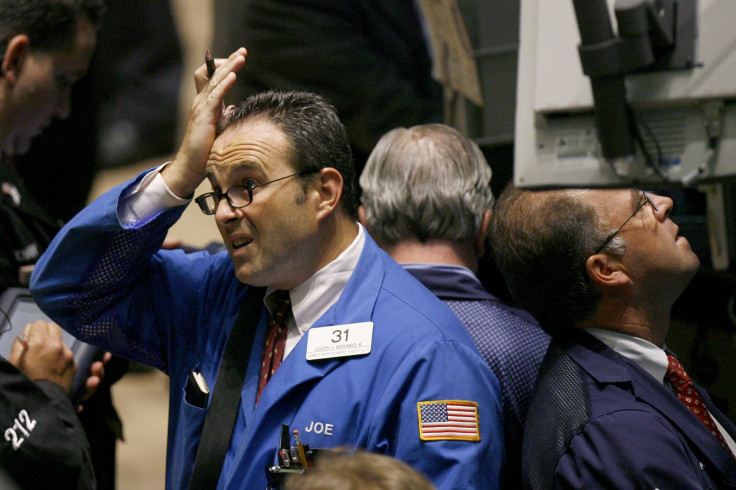Tuesday's Stock Market Open: US Equities Mixed As G7 Ministers, Central Banks Vow To Fight Virus Effects

KEY POINTS
- The Reserve Bank of Australia cut interest rate to 0.5%, a new all-time low
- Malaysia's central bank cut rates to 2.5%, a 10-year low
- Donald Trump called on the Federal Reserve to cut interest rates
Update: 10:10 a.m. EDT:
Stocks have suddenly turned higher after the Federal Reserve announced an emergency rate cut of 50 basis points to the 1% to 1.25% range in response to the threat from the coronavirus.
The Dow Jones Industrial Average gained 84.34 points to 26,787.66 while the S&P 500 rose 16.45 points to 3,106.68 and the Nasdaq Composite Index advanced 46.90 points to 8,999.06.
Update: 9:55 a.m. EDT:
U.S. stocks took a nosedive within a half-an-hour of the opening on Tuesday.
The Dow Jones Industrial Average plunged 188 points to 26,515.32 while the S&P 500 fell 20.73 points to 3,069.50 and the Nasdaq Composite Index dropped 61.53 points to 8,890.63.
Original story:
U.S. stocks opened narrowly mixed on Tuesday as G7 finance ministers said they will work together to deal with coronavirus without providing much detail.
The Dow Jones Industrial Average slipped 1.91 points to 26,701.41 while the S&P 500 fell 2.68 points to 3,087.55 and the Nasdaq Composite Index gained 2.87 points to 8,955.04.
On Monday, the Dow scored its biggest one-day gain in history, surging 1,294 points.
The Group of Seven industrial powers and central bank chiefs issued a statement calling for a coordinated response to the effects of the coronavirus.
“We reaffirm our commitment to use all appropriate policy tools to achieve strong, sustainable growth and safeguard against downside risks,” G7 stated. "G7 finance ministers are ready to take actions, including fiscal measures where appropriate, to aid in the response to the virus and support the economy during this phase. G7 central banks will continue to fulfill their mandates, thus supporting price stability and economic growth while maintaining the resilience of the financial system.”
The Reserve Bank of Australia on Tuesday reduced its cash rate by 25 basis points to 0.5%, a new all-time low. This was the RBA’s fourth cut in less than a year. The central bank’s governor Philip Lowe stated the coronavirus outbreak has a “significant effect” on Australia’s economy and said the rate cut was designed to “provide additional support to employment and economic activity.”
Malaysia's central bank, Bank Negara Malaysia, cut its rates to 2.5%, a 10-year low, citing that the ongoing coronavirus outbreak “has disrupted production and travel activity, especially within the region."
Bank of England governor Mark Carney warned that coronavirus could lead to a "large" but "ultimately temporary" shock to the economy.
U.S. President Donald Trump called on the Federal Reserve to cut interest rates.
“Markets will have to decide if the promise of concerted and possibly coordinated action from fiscal and monetary authorities will be enough,” said James Athey, senior investment manager at Aberdeen Standard Investments. “For most shocks you would probably say yes, but the scale, magnitude and sheer unknowable nature of this one [coronavirus] makes that an open question.”
As for Monday’s huge rally, Jeff Mills, the chief investment officer at Bryn Mawr Trust, dismissed it as a “technical snapback.”
“I think the spectrum of outcomes is so wide here that one trading day is not going to resolve all of our issues, so we’re telling our clients just to sit tight for now,” he said.
Overnight in Asia, markets finished mixed. China’s Shanghai Composite gained 0.74%, while Hong Kong’s Hang Seng slipped 0.03%, and Japan’s Nikkei-225 dropped 1.22%.
In Europe markets were higher as Britain’s FTSE-100 gained 2.02%, France’s CAC-40 advanced 1.97% and Germany’s DAX rose 2.46%.
Crude oil futures jumped 2.03% at $47.70 per barrel and Brent crude gained 1.93% at $52.90. Gold futures rose 0.56%.
The euro slipped 0.11% at $1.1121 while the pound sterling rose 0.26% at $1.2787.
© Copyright IBTimes 2024. All rights reserved.





















